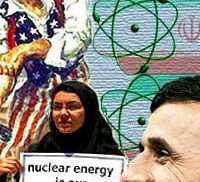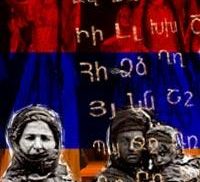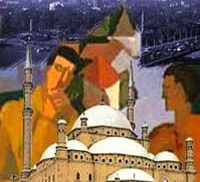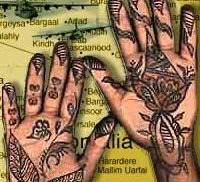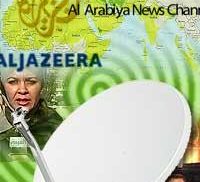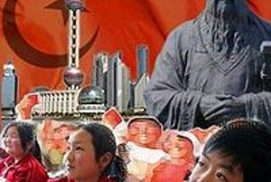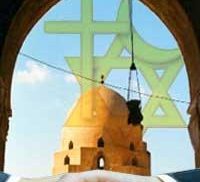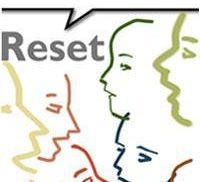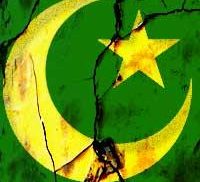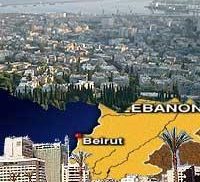This dossier stems from the debate sparked by Elizabeth Suzanne Kassab’s article—which opens this collection—on the transformation of the Arab intellectual scene after 2011. Her notion of a “new contemporary” in Arab thought prompted a series of contributions that do not aim to offer solutions, but rather to raise new questions, probe unresolved issues, and put forward critical perspectives. Bringing together Kassab’s essay and two related pieces, the dossier explores how Arab thought is redefining itself in light of the uprisings, the failures of political transitions, and the moral and intellectual rupture marked by Gaza.
Dossiers
- War has not yet been waged, but both Iran and the United States are doing their best not to avoid it. The Iranian leadership continues to pursue its nuclear programme, heedless of UN concerns. The Bush administration partakes in dangerous "provocations" (Gary Sick) on Iraqi soil, and does not exclude military intervention. Between the two lies Europe. The paths to war are infinite and implicate the role of Western intellectuals, who unwittingly risk strenghtening the current regime at a time when President Ahmadinejad is at ist lowest point and there are rumours of divisions amongst Tehran’s top ranks.
- Dispersed throughout the world, they have a history that stretches over millenniums. Today there are just over 10 million Armenians, but the early twentieth century genocide of which they were the victims has barely been acknowledged. It is a controversial question which continues to be as relevant as ever: the French National Assembly has passed a law punishing denial of the Armenian genocide; the Taviani brothers have dedicated a film to the massacre, premiered at the Berlin Film Festival; the Turkish-Armenian journalist Hrant Dink was killed in Istanbul because of his origins; and the U.S. Congress is divided over the official recognition of the genocide. But who are the Armenians? And how ‘Armenian’ do the members of this diaspora feel?
- They don’t seem to always exist in perfect harmony. Yet, in the current post-secular society, religion and democracy can’t make it without each other. That applies to the Western world, where more faiths live together in the same territory and where we face a religious revival (even though religion, to be true, never disappeared). But it is also valid for Muslim societies, where Islam needs to bring modernity, autonomous reason and science to account. Between a democracy subjugated by the ideology of secularization and one dominated by faith, is there possibly a third way?
- After sixteen years of chaos, in 2004 the main politicians and warlords finally signed a deal for a new government. Last summer, though, an Islamist movement (UIC) gained control of much of the south, including the capital Mogadishu, and imposed Sharia Law. With the backing of Ethiopia and the U.S., by the end of 2006 forces loyal to the government had defeated the Islamists. Can this be classified as a clash of civilization or just geopolitical conflict? The role of U.S. and of the Arab countries in a war in which prevailed only one rule: the law of the jungle.
- During the Iraqi war some named it “Jihad TV” or “Terrorist News Network”. Now the Qatar-based satellite network, the first attempt at a pan-Arab Arabic channel, launches its English version, Al Jazeera International. It demonstrates that the Arab world is not closed in upon itself and knows how to produce communications for the global market. Can TV help East and West to understand each other better?
- According to French Sinologist François Jullien, China has a foot in two camps: a traditional one, and a western one. How do these two cultures coexist? Confucius fights against Individualism, but the battle is bloody and the outcome is in doubt. China’s influence meanwhile spreads in the world, from Venezuela to Sudan. But what is its relation to Islam? What about the old Huntington prophecy, of an emerging “Sino-Islamic connection”?
- The West and the East do not understand each other. But amidst mutual incomprehension, terrorism and clash of civilizations, we still have a soft but effective arm: dialogue. Should religion be a part of it? What’s happening in Egypt, where our association held its first international conference.
- The experience of dialogue begins with the clarification of terms. That’s why ResetDoc is creating an “Intercultural Lexicon” – a place where the most contested issues of intercultural significance can be explored by analyzing the key words we hear in today’s philosophical and cultural debates. Because words count and can become dangerous weapons, Reset Doc’s Lexicon is a way for us to start understanding each other.
- During the Lebanese war, some Sunni governments criticized Hezbollah’s actions. They probably fear that the emergence of the so-called “Shia Crescent”, from Damascus to Tehran, from Beirut to Baghdad, will change the balance of power in the Muslim world. Will the phenomenon spread to other countries? Why is such an old sectarian division still dividing Islam? Iran funds and waits, and is always more powerful.
- Multicultural cities, have always represented an experiment of coexistence between different cultures and faiths. After being violently hit during the last war, does the capital of Lebanon and the biggest city of Northern Israel still represent examples of factual dialogue?



